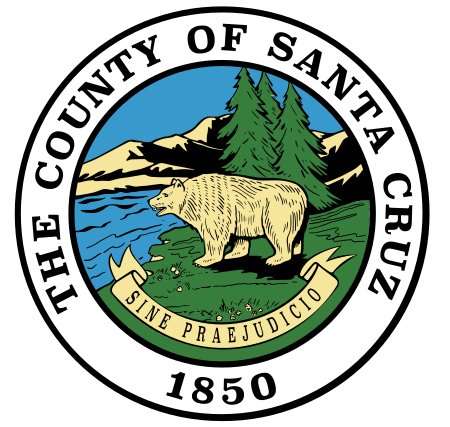CORONER FORENSIC TECHNICIAN (#RE2 ) $50.24-$63.59 hourly / $8,708.00-$11,022.00 monthly / $104,499.20-$132,267.20 yearly
Definition
Under general supervision processes and preserves deceased persons; assists pathologists in preparing human bodies for and in conducting autopsies for traumatic, unnatural or suspicious deaths; maintains facilities and equipment in a sterilized, disinfected manner; and performs other duties as required.
Distinguishing Characteristics
The Coroner Forensic Technician position is assigned to the Office of the Sheriff-Coroner, working in an autopsy room and office setting under the technical direction of a contract Forensic Pathologist. In this capacity the Technician is directly supervised by a Sheriff’s Sergeant.
Incumbents work independently with minimal supervision and are assigned to coordinate autopsy activities and network with allied law enforcement, private hospitals and mortuaries. Positions in this class are non-sworn civilian positions within the Sheriff’s Office. This position is distinguished from the Deputy Sheriff class in that it does not require peace officer status, training or responsibility, and persons in this class do not carry firearms. This class is further distinguished from the position of contract Forensic Pathologist by the lack of medical qualifications and licensing.
Typical Tasks
Receives, identifies, releases and moves deceased persons from refrigeration storage; prepares deceased persons for autopsy exam and final disposition; assists pathologist in performing medico-legal autopsies to include the opening and closing of deceased persons and the removal of internal organs.
Maintains morgue and autopsy room in a clean, sanitary and orderly manner; cleans and sterilizes equipment; checks for proper ventilation and condition of equipment; orders and maintains autopsy, office and other needed supplies.
Examines photographs and records external identification characteristics of deceased persons such as height, weight, hair, eye color and scars; transports deceased persons for x-rays and delivers films to pathologist.
Observes and reports conditions found that may be of value in an autopsy investigation; collects and prepares evidence, clothing and specimens for lab examination; preserves, stores and discards evidence, clothing and specimens as directed or according to established procedures.
Prepares for transportation and transports bodies of deceased persons to and from death scenes and county medical facilities. Works with bodies of deceased persons which may contain contagious or infectious diseases; inventories and stores personal property of deceased persons; completes daily logs and activity reports; serves as witness in Court cases as required.
Employment Standards
Knowledge:
Working knowledge of:
-
Surgical instruments, equipment, supplies and procedures used to assist a pathologist in performing medico-legal autopsy examinations.
-
Basic anatomy, physiology, dissection, medical terminology, rules of evidence regarding chain of custody and methods to preserve and safeguard evidence.
-
Applicable laws and regulations, health and safety codes and precautions for handling and preparing deceased persons and for contagious disease control.
-
Modern cleaning and disinfection methods and practices of cleaning floors, walls and fixtures.
Ability to:
-
Operate and maintain surgical instruments, equipment and supplies when assisting in performing medico-legal autopsy examinations.
-
Prepare clear and concise reports and keep accurate records.
-
Process and preserve deceased persons for autopsies and perform diener services after autopsy.
-
Maintain facilities and equipment in a sterilized manner.
-
Follow written and oral instructions of a technical nature.
-
Establish and maintain effective working relationships with those encountered in the course of work.
-
Work with bodies of deceased persons of all ages, including those associated with traumatic deaths and those infested with insects and vermin.
-
Tolerate unpleasant odors such as those from decomposed bodies and preservative chemicals.
Training and Experience: Any combination of training and experience that would provide the required knowledge and abilities is qualifying. A typical way to obtain the knowledge and abilities would be:
-
Two years of training and/or certification in nursing, mortuary science or laboratory pathology that develops a working knowledge of human anatomy/physiology, autopsy procedures and equipment, and methods of removing organs or preparing bodies for mortuary.
OR
-
Two years of college coursework (60 semester units or 90 quarter units) in Nursing, Mortuary Science, Lab Path or related field.
OR
-
Experience: One year of experience equivalent to that of an Entry-level Coroner Forensic Technician, Hospital Morgue Attendant, Embalmer, Diener, Deputy Coroner, or Autopsy Assistant.
OR
-
One year of experience in a hospital or morgue that would provide a working knowledge of hospital, laboratory, morgue or mortuary sanitation methods and procedures.
SPECIAL REQUIREMENTS, CONDITIONS:
The ability to see well enough to examine deceased persons and to assist with autopsies; to stand for long periods of time; to hear telephone and face-to-face conversations; and to speak clearly to serve as witness in coroner cases. Physical strength to lift and move bodies from gurneys to autopsy tables and to assist with autopsies. Manual and finger strength and dexterity sufficient to operate surgical instruments such as scalpel, bone cutters, scissors, knives, sewing needles and thread to assist with autopsies. Possess a sense of smell to detect chemical odors. Willingness to work flexible hours, which may include weekends, holidays and shift work.
Mentally and physically capable of performing the classification’s essential functions as summarized in the typical tasks section of this job specification.
License Requirement: Possession of a California Class C driver’s license issued by the State Department of Motor Vehicles.
Background Investigation: Successfully pass a complete background investigation.
Miscellaneous
Bargaining Unit: 41
EEOC Job Category: 02
Occupational Grouping: 62
Worker’s Compensation Code: 0285
Analyst: TC
CLASS: RE2; EST: 1/1/2007;

